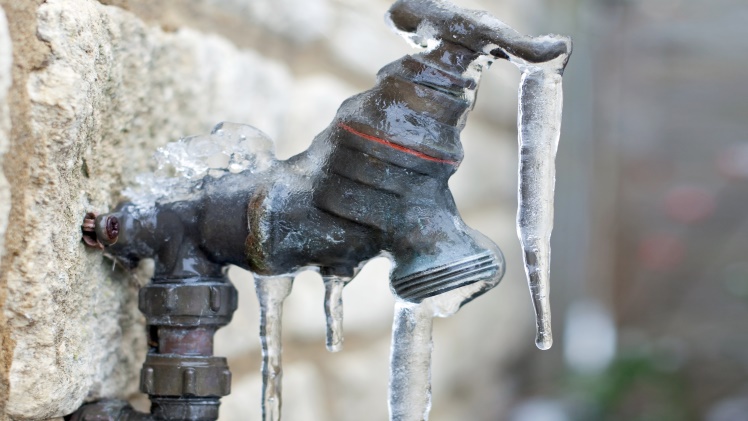There are several things that homeowners can do to avoid burst pipes. Using these tips can help to minimize water damage and save you from expensive repairs.
Aside from causing costly damage, burst pipes can also ruin your belongings. If left unattended, burst pipes can lead to mold growth and destroy the structural integrity of your home.
Warm Up Your Pipes
When water freezes, it expands and can cause a pipe to burst. This is especially true in pipes located in unheated areas, like basements, attics, garages and even under kitchen cabinets on exterior walls.
The easiest way to prevent frozen and bursting pipes is to keep them running. If you notice that your water pressure is dropping, turn on a faucet and leave it dripping to let the water continue moving through the system.
It’s also important to open up cabinet doors underneath your sinks to allow warm air to circulate more easily. This will also help prevent any hazardous cleaning products stored under your sink from causing a dangerous leak and potentially flooding your home.
If you have an older home, insulated pipe covers can help. This is an easy and inexpensive fix to help protect your pipes from freezing this winter. Also, be sure to check with your insurance company to see if damage caused by cold weather or burst pipes is covered.
Keep Your Pipes Clean
If the pipes in your home freeze, they can burst and cause water damage. This can be a costly fix, especially for homes with older plumbing.
You can avoid these problems by taking simple steps to protect your plumbing during cold winter weather. Here are some tips to keep your plumbing from freezing this season:
One of the easiest ways to protect your home from frozen pipes is by removing hoses and storing them away for the winter. This will help to prevent them from bursting when they expand with the cold.
Another way to help prevent a pipe bursting is by keeping it clean. It is recommended that you pour 12 ounces of chlorine bleach down your drains once a month to clean and disinfect them. This also helps to dissolve clogs that are common in kitchen and bathroom sinks, bathtubs and toilets. Only flush paper down the toilet and don’t throw things down your drain that can’t biodegrade like cigarette butts, food scraps, hair or grease.
Insulate Your Pipes
Having pipes properly insulated reduces the risk of freezing and bursting. This is especially important for pipes in unheated areas, such as crawl spaces, attics and garages. Foam insulation sleeves (typically available at hardware stores) or UL-listed heat tape are simple to install and can protect water supply lines against frigid temperatures and ice.
A quarter-million homeowners experience severe damage to their homes each year when poorly insulated pipes freeze, resulting in soaked carpets, ruined furniture and thousands of dollars worth of repair costs. But the problem is avoidable. Frozen water pipes can be prevented by using smart behaviors and strategies like leaving faucets open at a trickle on very cold nights, installing foam insulation and caulking cracks in your home’s foundation and walls. Preventing frozen pipes is always preferable to thawing and fixing damaged ones once they burst. That’s why learning how to avoid pipes bursting in your home is an important skill for any homeowner.
Call a Plumber
If you do have a burst pipe, the most important thing to do is call an emergency plumber as soon as possible. The longer water stays in your house the more damage it will cause. In the meantime, turn off your main water valve (typically located in a basement) and remove electronics, furniture and carpeting. Then start mopping up and drying the affected area as quickly as possible.
Leaking pipes are another common problem that can occur as a result of freezing or simply shifts in temperature, such as expansion or contraction in weaker parts of the pipe. Look out for puddles of water, damp patches in walls, and strange water colors or smells that can indicate a problem. Sometimes blocked drains in Adelaide can cause pipes to burst too. Over time if left untreated, whatever is causing the drains to improperly drain will eventually or can burst.
It may be worth contacting an emergency plumbing professional to see if your home could benefit from improved insulation around the pipe. This could prevent a future problem and save you money in the long run.

